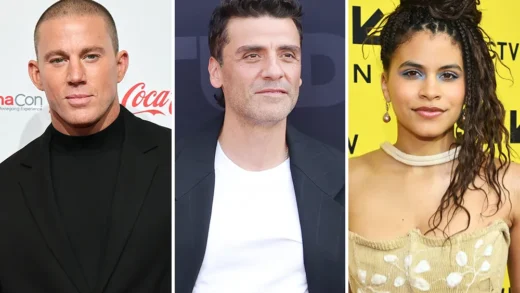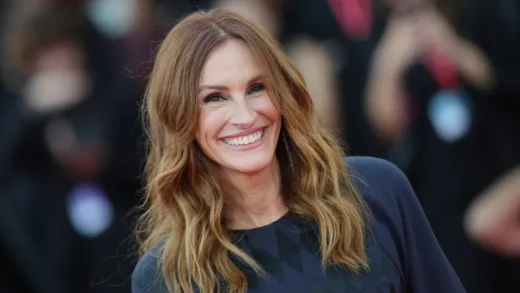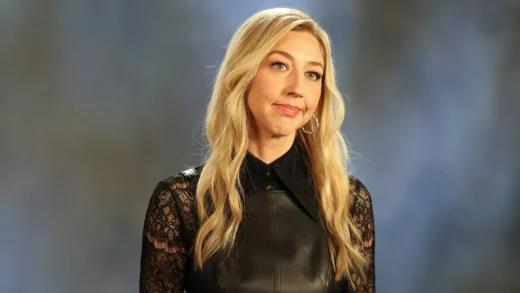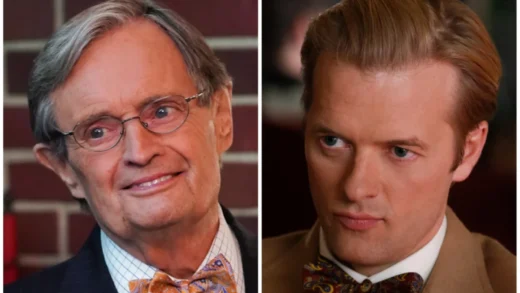Leave it to Oprah.
While receiving the Cecil B. DeMille Award at Sunday’s Golden Globes, she managed to do that difficult thing that she makes look so easy: She focused the themes and surging energies of a specific moment and distilled its messages and its painful essence — all while making viewers feel as though she was speaking directly to each one of them as individuals.
Most of the Golden Globes telecast — while certainly amped up by the #MeToo and #TimesUp movements and the personal testimonies that powered them — generally felt more or less like a normal awards telecast. There was clearly more pointed energy flowing through the event, and there were quite blunt, brutal, and welcome assessments of power dynamics, which began with Seth Meyers’ surgically precise, excellent opening monologue and extended to Natalie Portman pointing out that all the dramatic film director nominees were all men. Many winners gave fine speeches, and quite of few of them eloquently expounded on themes of intersectionality, gender, race, class, and the marginalization and abuse of the powerless.
But none of those other presenters or winners were Oprah. As the highlight reel of her accomplishments made clear, she’s important in many different spheres. But all of her empires were built on this unshakable foundation: She’s a master broadcaster. She connects.
In her speech, she painted a picture of herself as a young girl, awed by “elegant” award-winner Sidney Poitier, who was honored at a Golden Globes broadcast she saw decades ago. She tied that vision to the prospect of young girls today seeing her get her DeMille Award — and being the first African-American woman to do so.
And in a heartbreaking, necessary way, she brought a new name to the collection of stories every single one of us need to know.
Briefly, eloquently, she told the story of Recy Taylor, a woman who brought her brutal rape case to the attention of NAACP officials — including Rosa Parks, who investigated the crime.
“Recy Taylor died 10 days ago,” Winfrey said. “She lived too many years in a culture broken by brutally powerful men. Women were not believed.”
That time is over, Oprah told us, and when Oprah tells you a thing, you want to believe it. More work needs to be done, as Oprah pointed out, in factories, in offices, in science labs, on film and TV sets. She was clear about the fact that this movement is in its beginning stages, not at an end. But when she paid tribute to the power of the press to tell the truth, when she celebrated people — many of them women — who told their stories, and when she talked about the justice Recy Taylor didn’t get, it was hard to think about these things as abstractions. I don’t know about you, but Oprah made me feel these things in a cathartic way.
I tried not to cry during her speech, I really did. But I lost that battle as she neared the close of Taylor’s story. Taylor died after living a long life, a life she built after going through something unthinkable. Being recalled and celebrated by one of the most famous women in the world — it wasn’t justice, but it was something. It was certainly something.
In a room full of master storytellers, Oprah showed them all how it was done. Oprah united the famous and the unknown, the powerful and the powerless, the farm worker and the film star.
As she built to the close of her speech, with the crowd on their feet, Oprah told those who oppress and bully and assault that their time was up.
Time will tell if she was right. Maybe she won’t be; maybe the entire night was all so much well-orchestrated, well-intentioned theater. But in that moment, it felt like having Oprah on the side of the avenging army of women would make the movement unstoppable.
(Excerpt) Read More in: Variety




